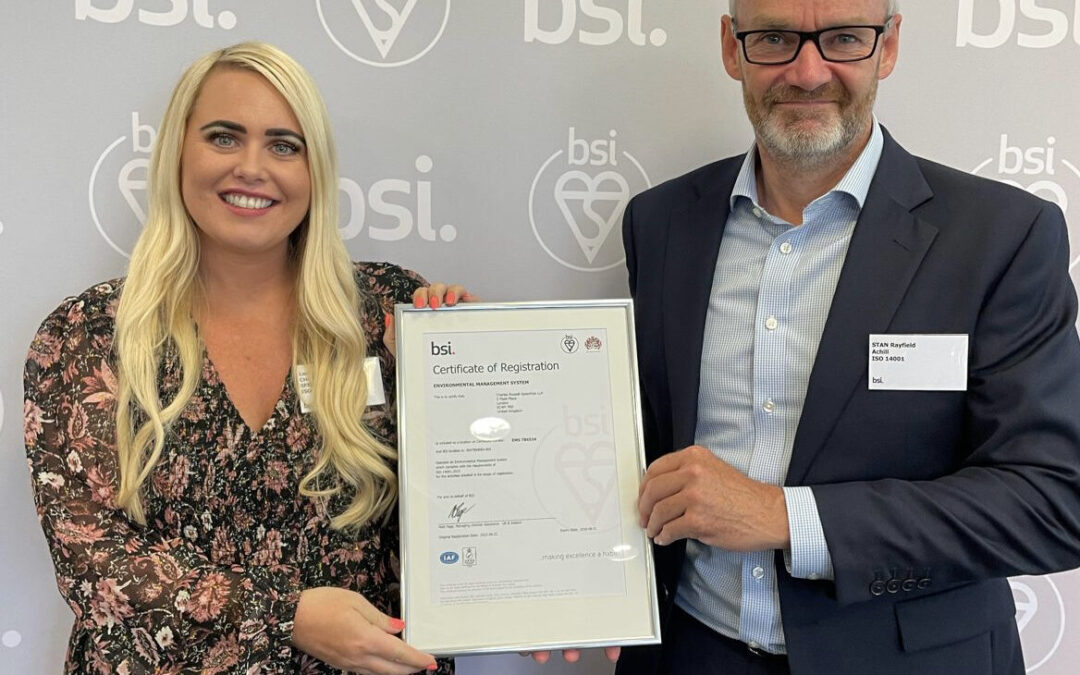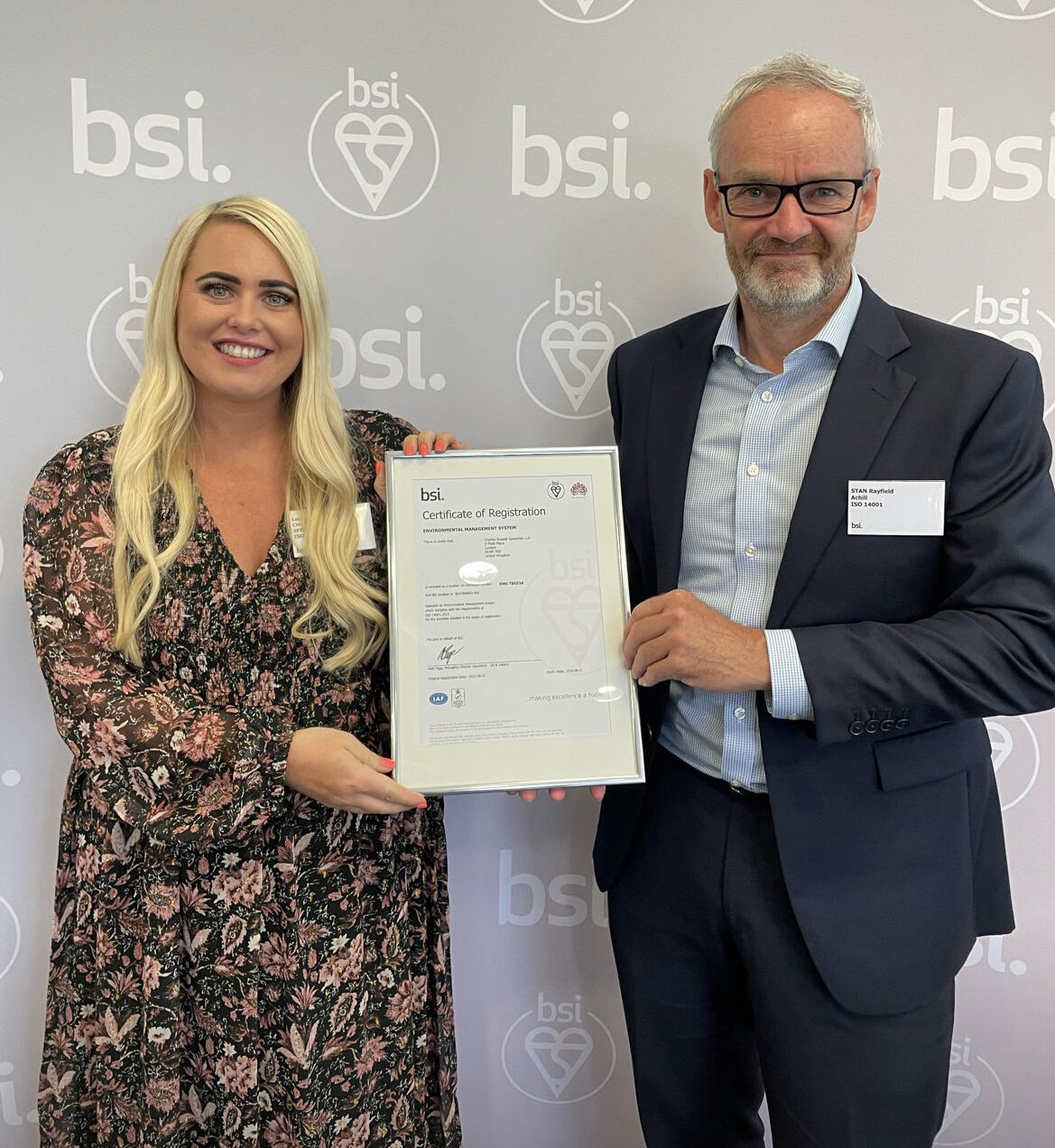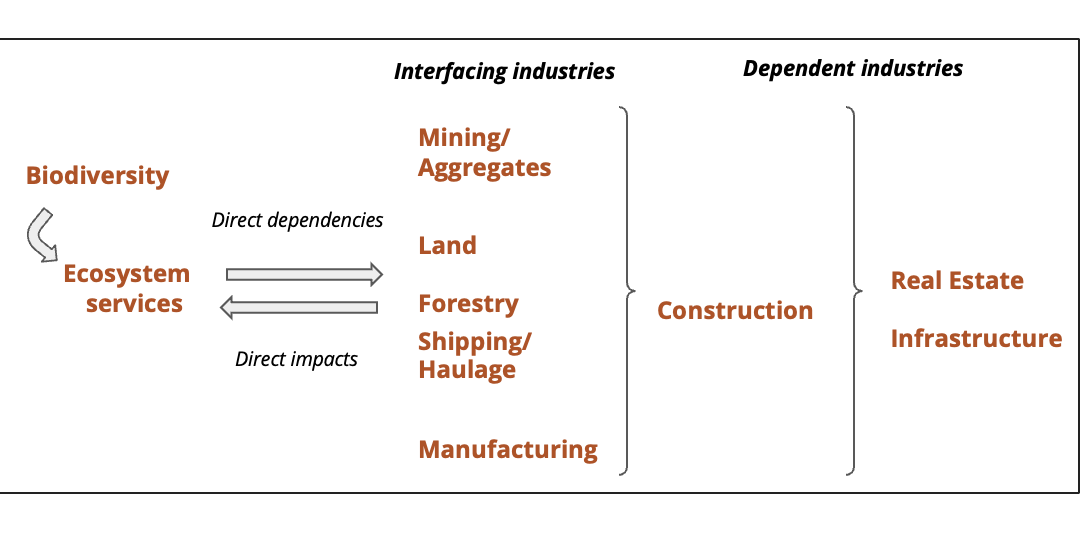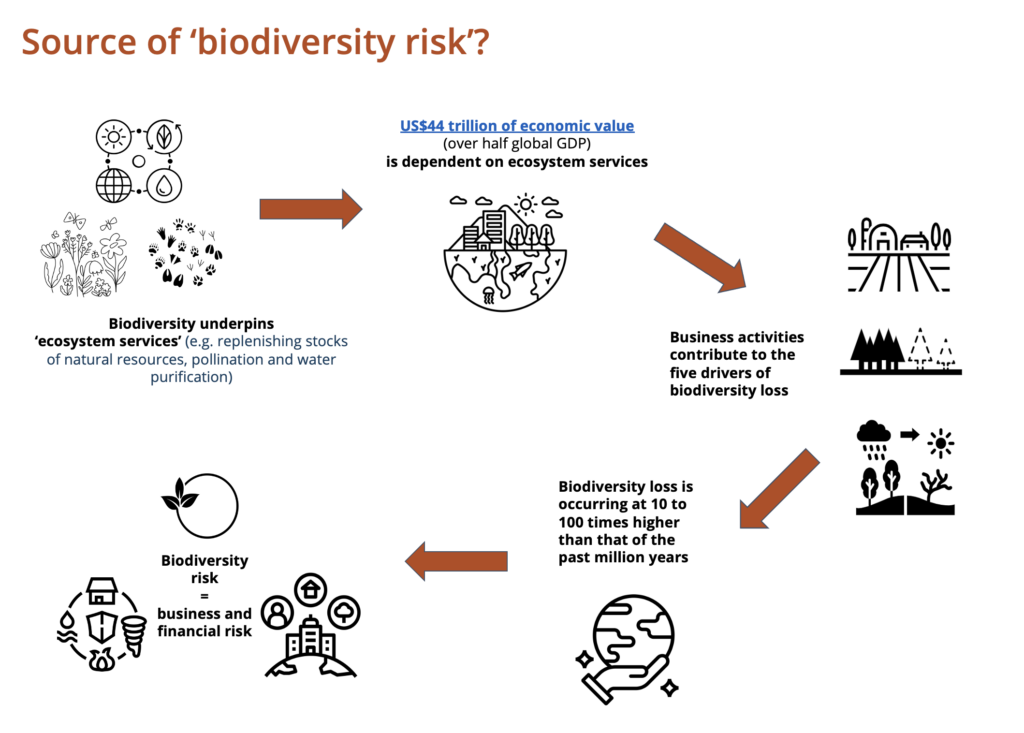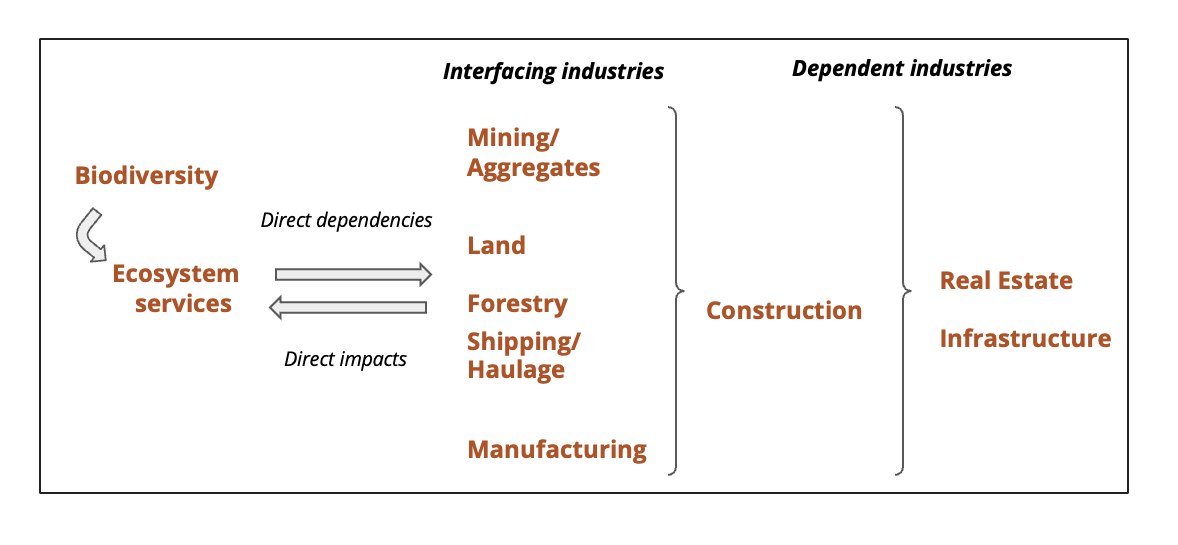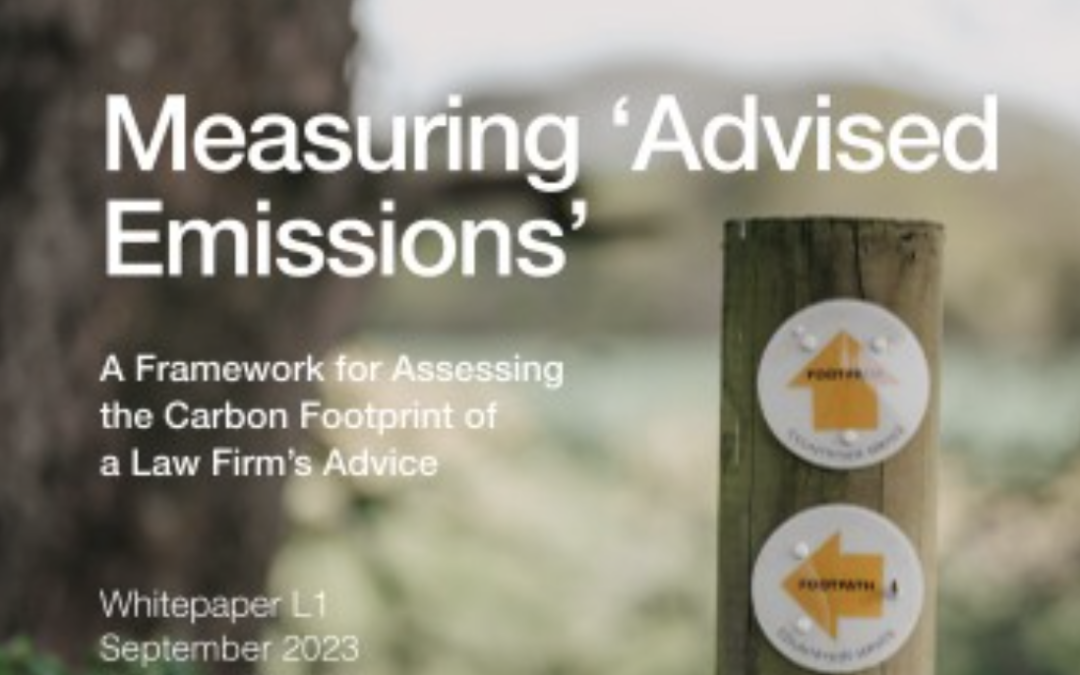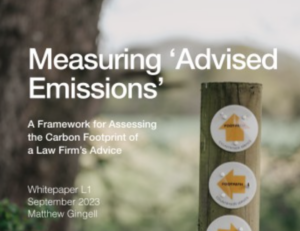Sustainability, social justice, creating meaningful change – how do you accelerate progress within your firm on an international, national, business and individual level? How do you unify the strands of these vital agendas to encourage colleagues to break down silos and increase collaboration? Law firm Pinsent Masons found the answer lay with the United Nations Sustainable Development Goals (aka
SDGs – sometimes also known as the ‘Global Goals’).
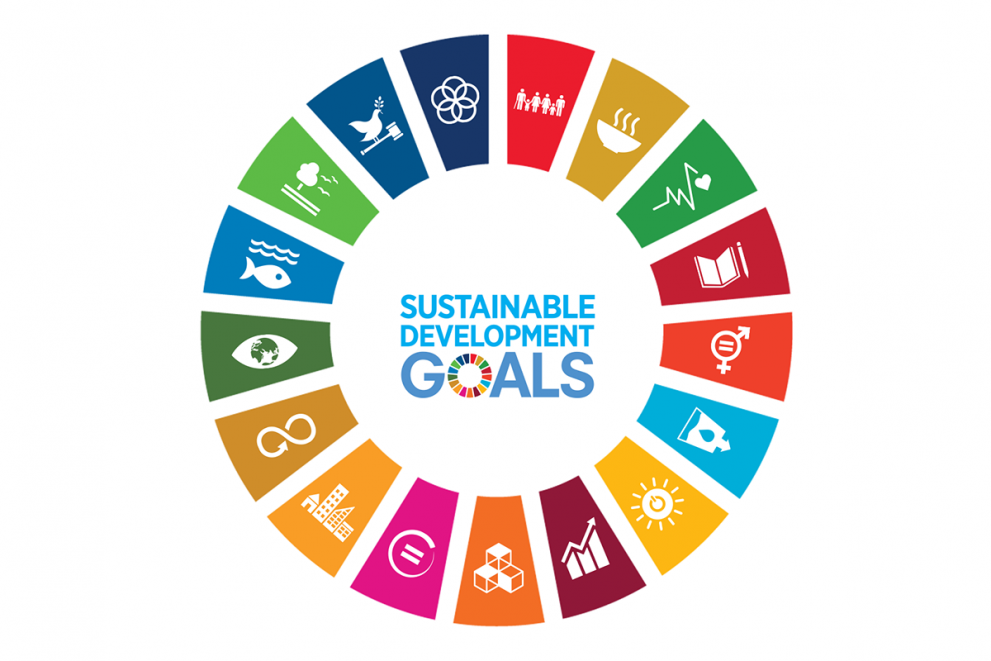
We spoke to Mike Harvey, Head of Responsible Business and Sharon Smith, Head of Learning & Knowledge for Climate & Sustainability at Pinsent Masons about how they harnessed the SDGs to inspire colleagues and clients to engage with their responsible business agenda. LSA member firm Pinsent Masons is a multinational law firm which specialises in the energy, infrastructure, financial services, real estate and technology, science & industry sectors.
Having signed up to the UN Global Compact, both Mike Harvey and Sharon Smith wanted to accelerate progress.
“We were both passionate about the SDGs and felt we should be doing more. The initial step was to raise awareness about SDGs – what we do as a firm, what our clients are doing and what we do as individuals.”
Sharon
The Sustainable Development Goals are 17 interlinked goals designed to serve as a “shared blueprint for peace and prosperity for people and the planet, now and into the future.” They are ambitious and radical. They act as a comprehensive pathway and were the first of their kind to achieve global consensus, a magnificent example of negotiation and perseverance, a multi-stakeholder engagement process involving governments, businesses, intergovernmental organisations and civil society. It helps that they come with recognisable visuals which are engaging and easy to use. In fact the simple graphics are quickly becoming iconic.
“The SDGs are a useful framework to talk to our clients and suppliers – a common language that we all work to and a tool to build deeper relationships.”
Mike
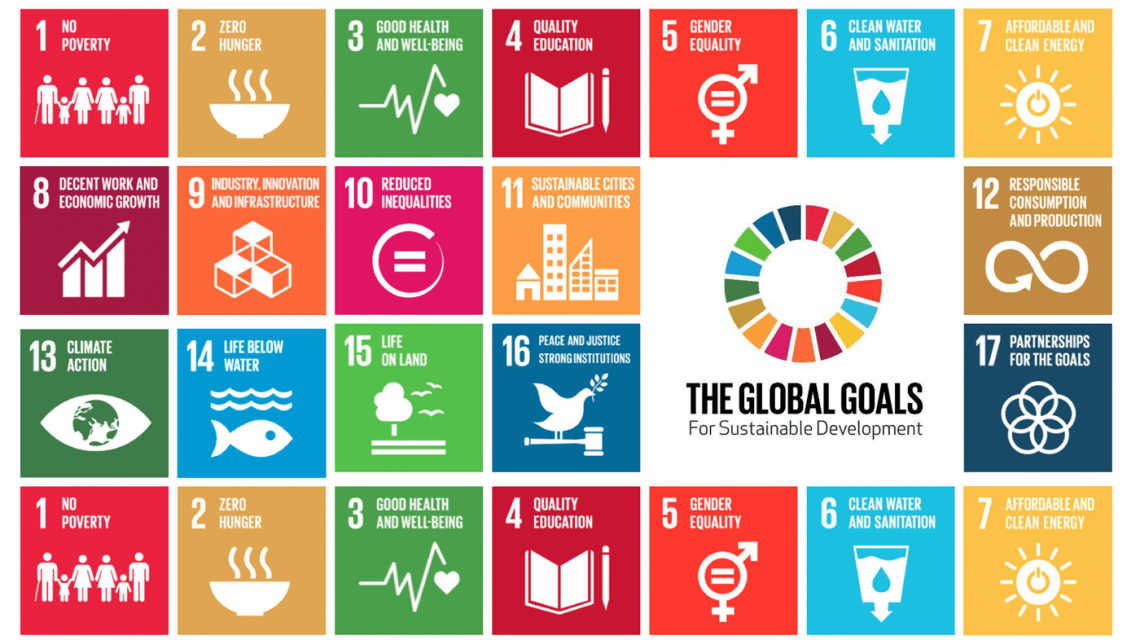
“With things that are going on in the world it can feel like ‘it’s out of my control’. The SDGs can help people feel empowered. They can help people find purpose and meaning in what they are doing. It can help to build morale and a sense of community.”
Sharon
Each of the SDGs represents a complex but important area. The team ran an internal survey asking, amongst other things, what is your awareness of the SDGs? Awareness was low, but they sensed there was an appetite to find out more. Mike and Sharon decided that the key to building an enduring and resilient campaign was to spend a month on each SDG, but not to be limited by this schedule. If one SDG remained relevant for longer, because of an international event or diary date, then the schedule would facilitate that.
Certain SDGs seemed to fit certain times of the year – for example SDG 2 – Zero Hunger was scheduled to coincide with Christmas and incorporated the work that they were already doing with food banks and schools. SDG 14 – Life Below Water, fitted in with Plastic Free July and SDG 13 – Climate Action ran alongside the UNFCCC COP.
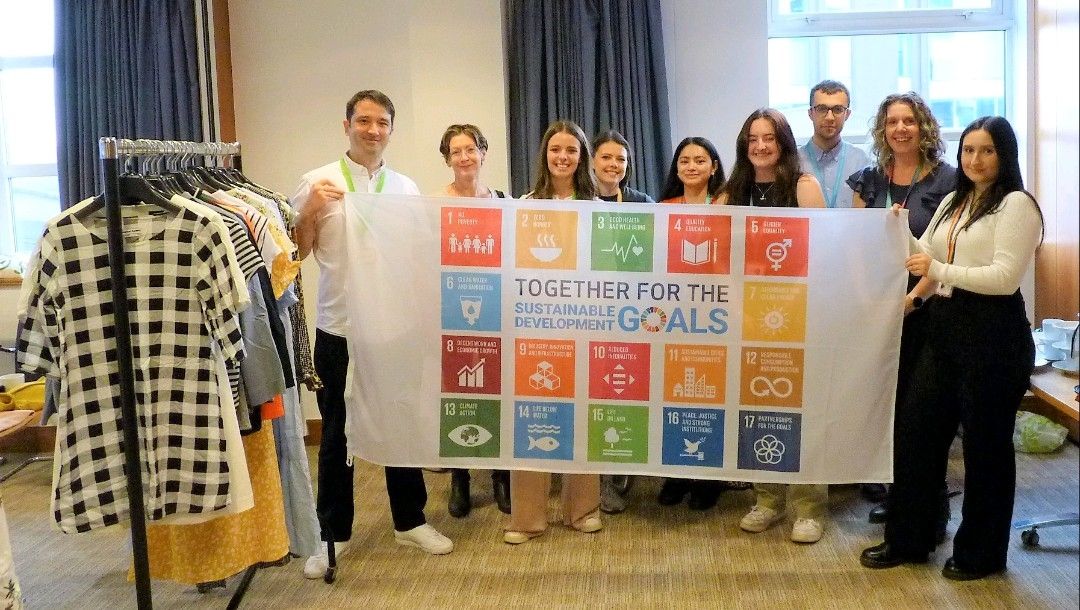
An SDG Working Group including Mike, Sharon and members from the firm’s Spark Board and Responsible Business team was set up to work on campaign actions, and SDG Champions, including senior partners and managers at the firm, volunteered to champion specific SDGs. They used MS Viva Engage to share internal communications, including YouTube video explainers to engage with colleagues.
The team set KPIs to measure impact, the key one being – would individuals in the firm start talking about the SDGs independently of the campaign? Monitoring social media and internal comms they soon realised this was happening. That was a moment of celebration! The campaign, which both admit was a learning process, had evolved into a grassroots movement.
“We decided it would be a slow burn – a longer process. We wanted to combine the SDG campaign with other initiatives so they all joined up. We didn’t want this to be just another campaign.”
Mike
The campaign kicked off by using the SDGs as an umbrella to unite responsible business activities and raise awareness, but the team soon found that the framework was highlighting areas in which they could do more, which in turn inspired them to engage internationally and find commonalities so they could take action to plug those gaps.
Highlights of the campaign saw the London office being lit up in the colours of the SDGs and SDG icons, (including on flags, pin badges and visual media) being placed around the firm, generating conversations and galvanising action. The campaign engendered a feeling throughout the firm that they were moving forward as one.
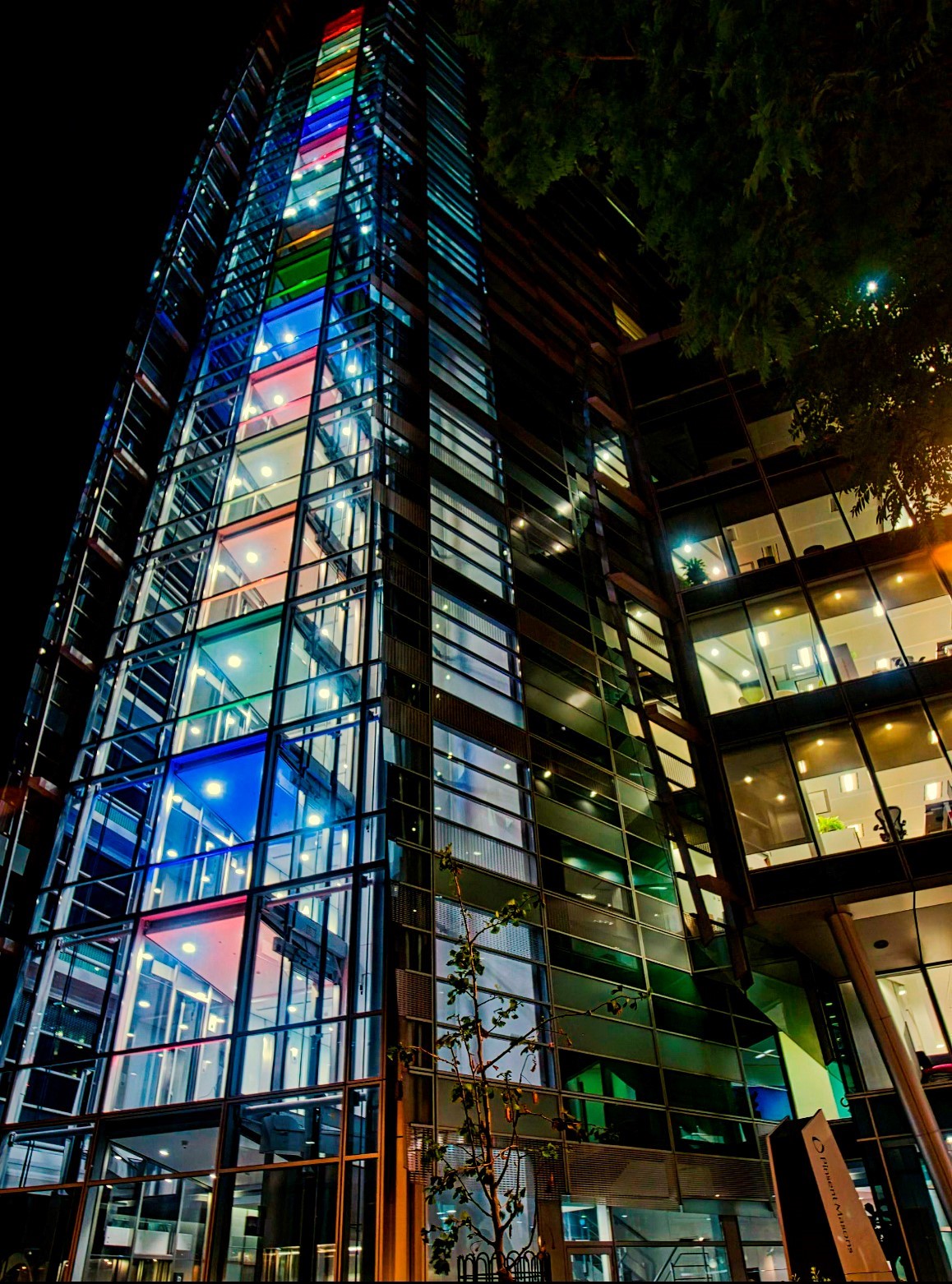
Crown Place lit up in the colours of the SDGs
We asked Sharon and Mike what advice they would offer to a firm considering using the SDGs to amplify and consolidate their ESG activity.
“Just start! It can feel so big and overwhelming. The best thing to do is just start.”
Mike
“I agree with Mike. Try and find which SDGs resonate with people in your firm and just start!”
Sharon
The campaign has been such a success that Pinsent Masons are planning to keep it rolling, revisiting a new SDG each month, given the constantly changing nature of the ESG landscape and the appetite within the firm to evolve with it.
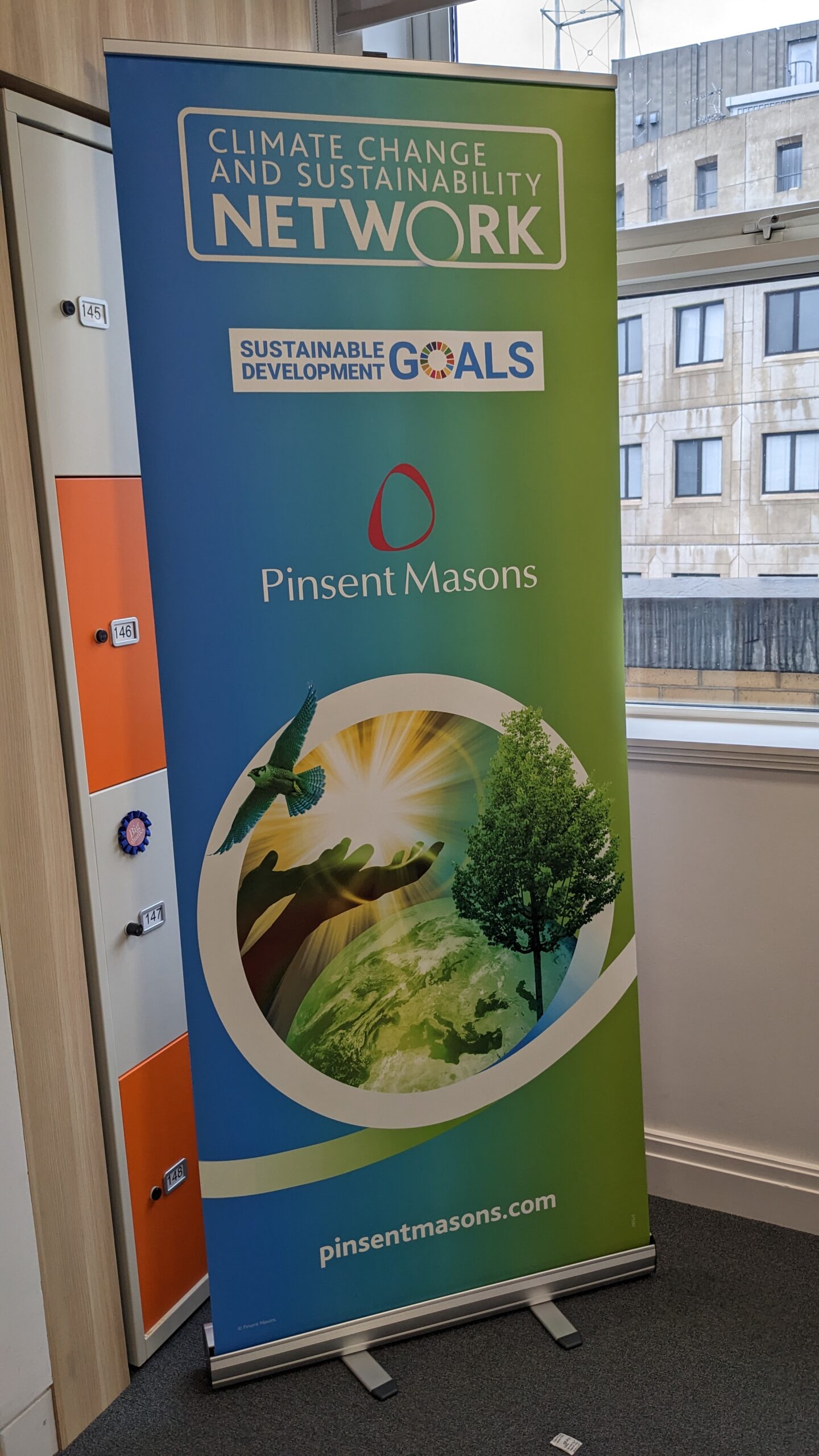
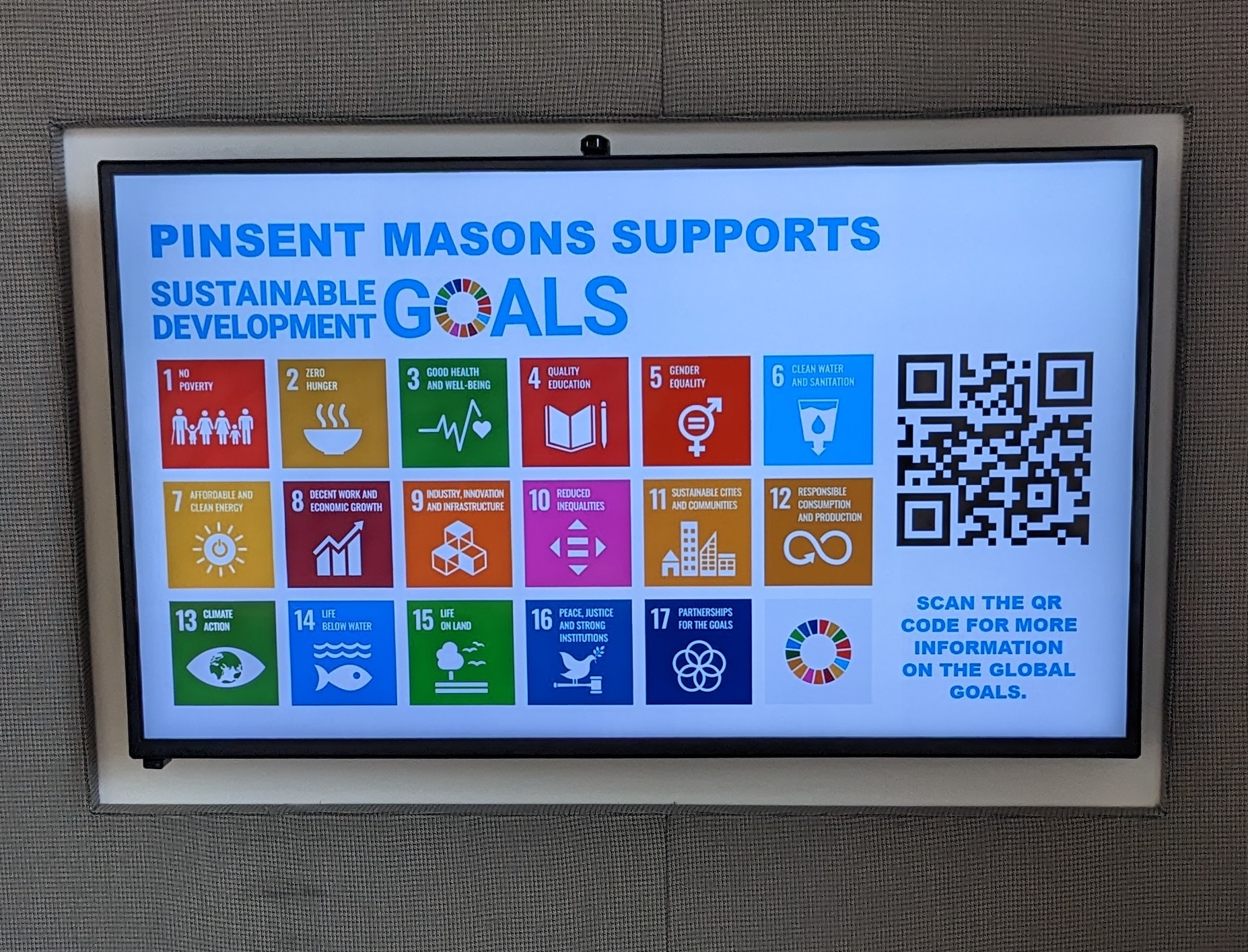
If you have a sustainability success story to share with us please email [email protected].









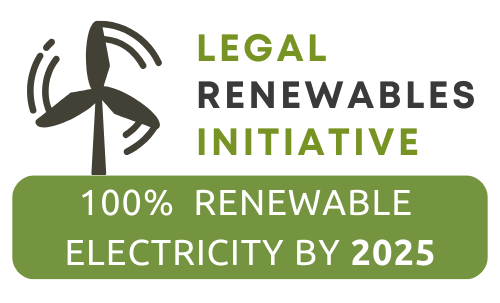 Reducing energy consumption reduces your carbon footprint, lowers operational costs and has a positive impact on the environment. Because the greenest energy is the energy that we don’t use, the LSA already works hard to support firms to reduce their scope 2 emissions through implementing energy efficiency measures and educating the workforce. However, we need to keep the lights on and offices warm – so when we do use energy, we want to ensure that it is the greenest energy available to us with the lowest environmental impact. That is where the Legal Renewables Initiative comes in.
Reducing energy consumption reduces your carbon footprint, lowers operational costs and has a positive impact on the environment. Because the greenest energy is the energy that we don’t use, the LSA already works hard to support firms to reduce their scope 2 emissions through implementing energy efficiency measures and educating the workforce. However, we need to keep the lights on and offices warm – so when we do use energy, we want to ensure that it is the greenest energy available to us with the lowest environmental impact. That is where the Legal Renewables Initiative comes in.
